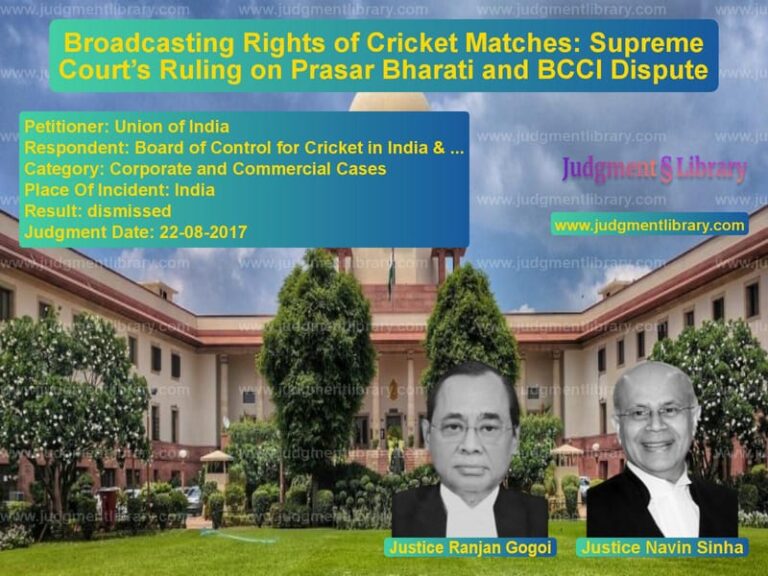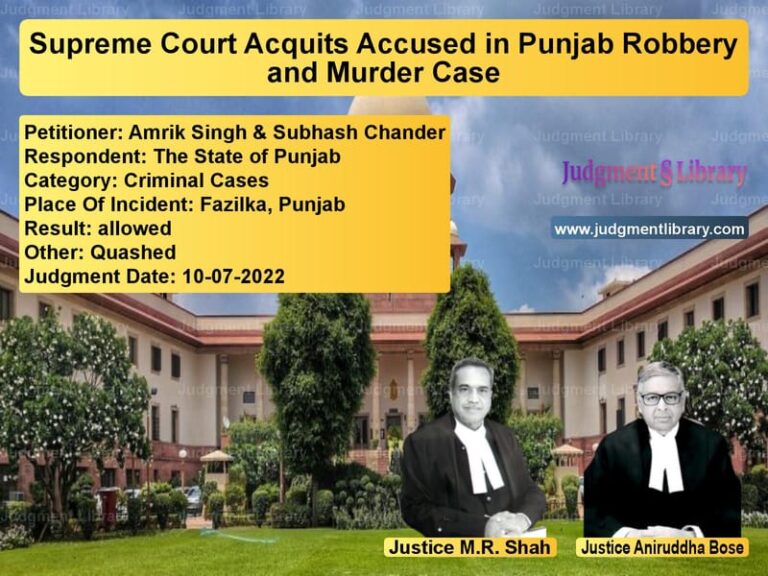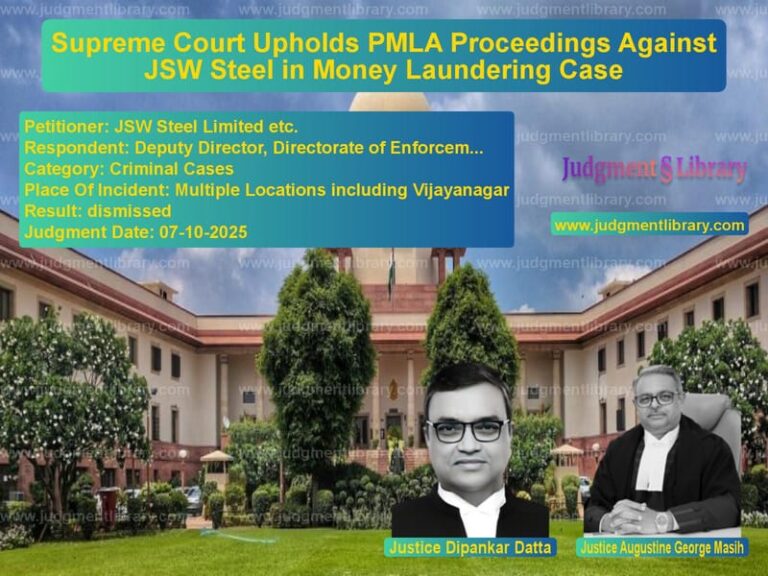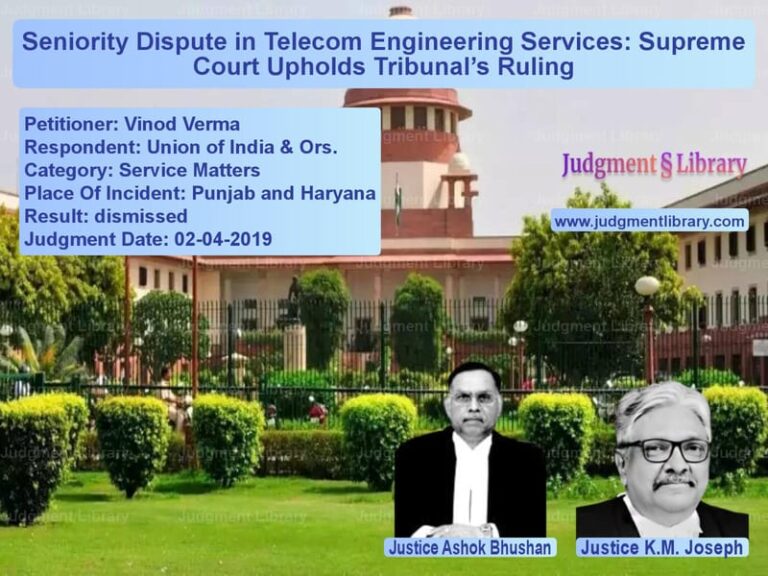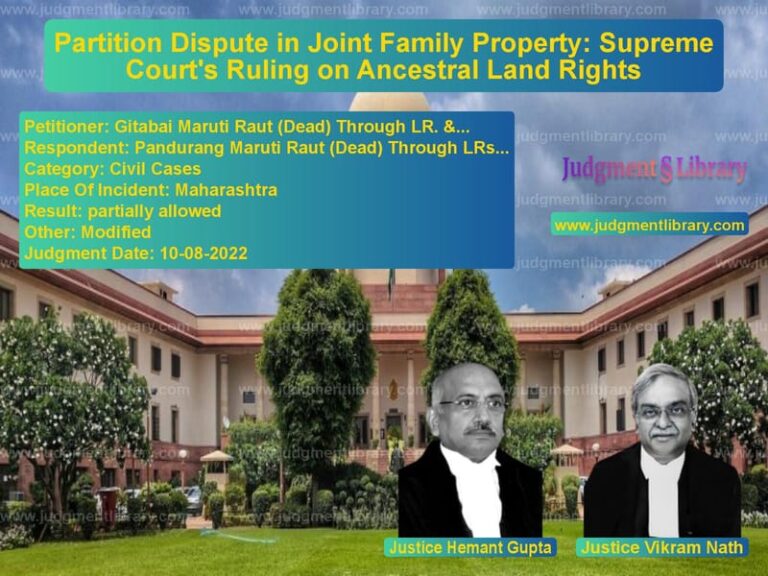CBI Investigation Ordered in Bail Application Overturned: A Legal Analysis
In a significant ruling, the Supreme Court of India overturned a High Court order directing the Central Bureau of Investigation (CBI) to register a case based on a statement recorded under Section 161 of the Code of Criminal Procedure (CrPC) in a bail application. The case, State of Uttar Pradesh vs. Dr. Ritu Garg & Others, revolved around whether a High Court could order a CBI inquiry while deciding a bail plea, a matter that raised crucial questions about judicial overreach and procedural propriety.
Background of the Case
The case originated from an investigation in Uttar Pradesh, where a statement under Section 161 of the CrPC, given by one Dr. Umakant, became the basis for a High Court directive to the CBI. The State of Uttar Pradesh challenged this order, arguing that such a direction could not be issued in a bail application.
The High Court, in its decision, had directed the CBI to initiate an investigation, citing concerns over the credibility of the ongoing state police probe. However, the Supreme Court found that the High Court overstepped its jurisdiction and set aside the order.
Petitioner’s Arguments (State of Uttar Pradesh)
- The High Court’s order violated established legal principles by directing a CBI probe in a bail application.
- The Uttar Pradesh government had already requested a CBI inquiry in October 2022, but the central government had declined it in April 2023.
- The investigation was already at an advanced stage, and transferring the case at this juncture would undermine the morale of the state police.
- The High Court lacked the authority to issue such directions without an exceptional reason.
Respondent’s Arguments (Dr. Ritu Garg & Others)
- The credibility of the investigation by the state police was in question.
- The High Court’s order aimed to ensure an impartial inquiry into the allegations.
- The statement under Section 161 CrPC contained crucial information that warranted an independent probe.
Supreme Court’s Key Observations
The Supreme Court emphasized that while High Courts and the Supreme Court have extraordinary powers to order a CBI probe under Articles 226 and 32 of the Constitution, such powers must be exercised cautiously. The Court ruled:
“This extraordinary power has to be exercised sparingly, cautiously, and in exceptional situations where it becomes necessary to provide credibility and instill confidence in investigations.”
The Court referred to past precedents, including State of West Bengal v. Committee for Protection of Democratic Rights and State Represented by Inspector of Police v. M. Murugesan, which had established that courts should refrain from issuing investigative directives in bail applications.
Most Important Verbatim Arguments from the Judgment
“In the instant case, the bail application stood allowed, but based on a Section 161 Cr.P.C. statement, the High Court directed an inquiry by the CBI. No exceptional or extraordinary circumstance has been brought out from the Section 161 Cr.P.C. statement to justify such a direction.”
“We are also bound by precedents which unequivocally hold that there can be no such direction issued in a bail application.”
The Supreme Court found that there was no compelling reason for the High Court to intervene in an ongoing investigation, especially when the state police were already probing the matter.
Final Judgment and Conclusion
The Supreme Court set aside the High Court’s order directing the CBI probe but upheld the bail granted to the respondent, stating that the state had no objections to the bail. The ruling reaffirmed that investigative agencies should be allowed to function independently without unwarranted judicial interference.
By overturning the High Court’s order, the Supreme Court underscored the principle that courts must exercise restraint in matters of investigation, especially in bail proceedings. This judgment sets an important precedent in defining the limits of judicial intervention in criminal investigations.
Petitioner Name: State of Uttar Pradesh.Respondent Name: Dr. Ritu Garg & Others.Judgment By: Justice Sudhanshu Dhulia, Justice K. Vinod Chandran.Place Of Incident: Uttar Pradesh.Judgment Date: 23-03-2025.
Don’t miss out on the full details! Download the complete judgment in PDF format below and gain valuable insights instantly!
Download Judgment: state-of-uttar-prade-vs-dr.-ritu-garg-&-othe-supreme-court-of-india-judgment-dated-23-03-2025.pdf
Directly Download Judgment: Directly download this Judgment
See all petitions in Bail and Anticipatory Bail
See all petitions in Custodial Deaths and Police Misconduct
See all petitions in Legal Malpractice
See all petitions in Judgment by Sudhanshu Dhulia
See all petitions in Judgment by K. Vinod Chandran
See all petitions in allowed
See all petitions in supreme court of India judgments March 2025
See all petitions in 2025 judgments
See all posts in Criminal Cases Category
See all allowed petitions in Criminal Cases Category
See all Dismissed petitions in Criminal Cases Category
See all partially allowed petitions in Criminal Cases Category


